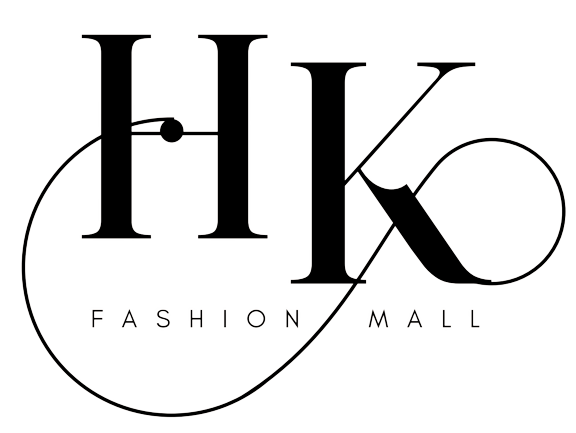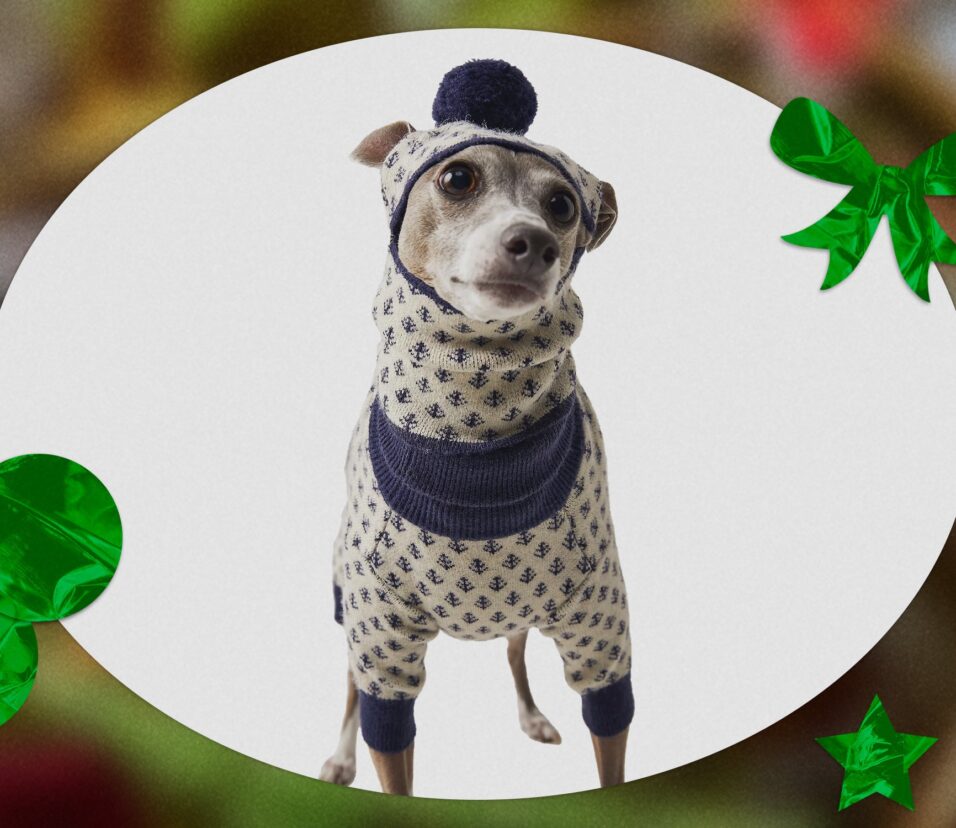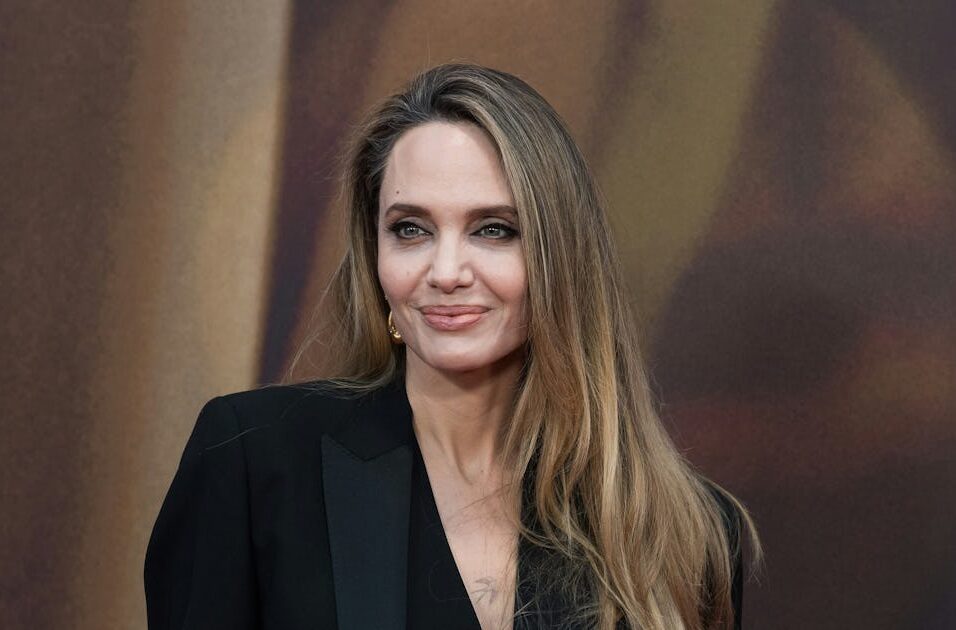At RaiseFashion, Positioning BIPOC Fashion Designers for Strategic Growth
US-based non-profit RaiseFashion launched in July 2020 in response to the Black Lives Matter and social justice movements, with an aim to offer increased support and advocacy for BIPOC talent and business owners in the fashion industry.
Industry-wide efforts to improve diversity, equity and inclusion (DEI) in the fashion industry have struggled to maintain momentum — from the high turnover of chief diversity officers to a conservative backlash seeing some companies row back on their DEI commitments. Despite this, RaiseFashion has continued to drive forward its mission, relaunching its eight-week masterclass known as the Brand Fellowship Program with its largest cohort yet, welcoming 10 BIPOC US and UK-based designers to the programme. Each receive a grant of $15,000, with an additional $15,000 grant available to two finalists identified at the end of the programme.
Participating designers gain access to RaiseFashion’s volunteer advisory network consisting of over 400 industry leaders, with 35 mentoring sessions over the eight-week fellowship period, up from 22 in 2023. Designers also participate in educational programming of key strategic and operational insights from a cross-section of industry experts and advisors during the masterclass programming on how to build a successful brand in the contemporary fashion landscape. Previous speakers have included VP of Comme des Garçons and Dover Street Market USA, James Gilchrist, fashion designer Laquan Smith and global head of brand strategy at Apple, Kathryn Chalmers.
“In a period where enthusiasm for funding and dedication to social impact initiatives appears to be diminishing, we are moved by our partners’ continued investment in the talent cultivated at RaiseFashion. The inclusion of more designers in our programme, providing them with the necessary support, is crucial,” RaiseFashion executive director, Felita Harris, told BoF, adding the organisation’s aspirations to expand the masterclass in its next iterations to broaden its reach and enhance its impact.
The designers in the 2024 RaiseFashion programme are also given the opportunity to present a collection in-person at a multi-designer showroom experience at New York Fashion Week, accessible to the likes of retailers, editors, press, influencers and even consumers, at a location in Manhattan.
Now, BoF sits down with the five designers from this year’s masterclass cohort, all based in New York, to learn how RaiseFashion has helped broaden their opportunities and access to the industry.
Kingsley Gbadegesin, K.ngsley

K.ngsley is a fashion brand founded in 2020 by Kingsley Gbadegesin, a first-generation Nigerian-American and a New York–based creative. Having worked for the likes of Versace, Celine and Loewe, Gbadegesin launched his label in 2020, which offers ready-to-wear and accessories and is worn by the likes of Lil Nas X, Black Pink and Lupita Nyong.
What are the key challenges you face as a designer and entrepreneur today?
Funding and timing. Sometimes it can be challenging to look at the landscape as you try to focus on what you want to do. But you also have to see what the competition is doing and keep up with that — producing more looks — it’s definitely a challenge. But I’m so happy that we have been able to scale. K.ngsley used to be a brand that only produced tank tops, and now we’re making accessories and shoes.
Capital is also a challenge, because it’s about manpower — we can’t do what we do alone. Don’t get me wrong, everyone on my team has another [job], but I feel blessed that when we get together in a room, it’s truly unstoppable. And I can’t wait to have that full time. But again, we need funding to be able to do that.
What does RaiseFashion’s programme offer you and your business?
RaiseFashion has been a great support. They don’t just provide business guidance — it’s the resources too. That $15,000 grant funded our Fall/Winter 2024 development.
Raise has also been instrumental in providing a network, so that I can click with someone and ask for their thoughts and opinions — that’s been the biggest blessing. It also continues to heighten my sense of community. Like designer Aisling Camps, who I met originally in the first Raise group — we both had a lot of the same questions and a lot of the same pushbacks in certain areas. She helped me find a studio, so we now have studios in the same building, which has been the biggest [support] for my mental health.
What are your plans for K.ngsley in the medium term?
I have a strong overall view of what needs to happen this year for us in terms of activations. For K.ngsley, the people that really matter are the amazing clients who shop our DTC. I want K.ngsley to continue to be that community, to provide space and warmth.
I’m thankful for the people I’ve met in passing through Raise, as well as those outside of it who have given me opportunities to host a lunch or dinner for 10-20 or so people [as a K.ngsley activation]. When I did this for the first time, five of those clients responded to the email asking for a showroom appointment because they wanted more “newness” before the dinner. So in those two days, we made client orders that totalled more than a department store order — just off the back of inviting them to an activation. So for me, it’s about seeing those little things.
Aisling Camps, Aisling Camps
Having graduated from Columbia University in New York, Aisling Camps worked as a mechanical engineer specialising in sustainability. Her creative impulses drew her towards fashion so, after completing studies at the Fashion Institute of Technology, she founded her namesake knitwear brand. All ready-to-wear pieces are either handmade in Brooklyn or outsourced to a family-run factory in Italy.

What are the key challenges you face as a designer and entrepreneur today?
The toughest challenge overall and specifically at this time is cash flow. We have to wait six months before we actually deliver a collection, but we have to pay for our materials upfront. So learning what I can ask for, knowing when to push back, how to set my terms [with a supplier], knowing what’s reasonable, and getting feedback on that from Raise, is really helpful.
What does RaiseFashion’s programme offer you and your business?
My background is in engineering. I quit my job, I went to the Financial Institute of Technology in New York (FIT) and then suddenly I was in the industry without any contacts, know-how, and only minimal experience from internships.
Raise has been instrumental in connecting me with the right people to get to the next step. For instance, I got one of my major retailers through one of the members at Raise. She gave me the email of a buyer and offered to introduce me so that the email didn’t get lost. I got a $40,000 buy the next week. Before, I was just screaming into a chasm and no one was hearing.
Having someone who is an industry veteran vouch for me and send an introductory email is so meaningful, as opposed to cold emailing, to which you might get a 10 percent response rate if you’re lucky.
What are some of your key learnings as a business owner in fashion?
I’m surprised at how much they don’t teach you at fashion school. I think I was lucky in the sense that I had come from engineering, so I was very well-versed in spreadsheets and they didn’t scare me. I learned to be really organised about a lot of different things because figuring out what your margin is going to be is everything, and no one really showed me how to do that.
Documenting and tracking what you’re spending is crucial. Whether it’s sourcing a different yarn or using a different factory that has a different cost, it’s all been about learning how to manage all those numbers, so that you can continue on to another season.
It’s been a lot of trial and error, a lot of experimentation. So staying curious, staying innovative, has been important. You can’t keep doing the same thing over and over again. It’s the one industry where there’s no one route to follow. You really have to try different things all the time, in order to succeed. So, don’t ever get comfortable.
Keith Herron, Advisry

Keith Herron is a fashion designer who grew up in Sacramento, California. He founded his fashion brand, Advisry, in 2014, while still at school. He began selling his collections online, and has now shown four times at New York Fashion Week. Now based in New York, his designs have been worn by the likes of Tyler, the Creator, Virgil Abloh, Phoebe Bridgers and Steve Lacy.
What are the key challenges you face as a designer and entrepreneur today?
I find it difficult to keep up a specific presence within the industry while also existing as a commercial business. I feel like the fashion industry itself doesn’t necessarily lend itself to both facets if you’re an independent emerging designer. At the same time, we’re under pressure to meet expectations in order to participate within the industry.
RaiseFashion has been helpful in advising us to view it with a different perspective — by making sure that the business side of the brand is intact before launching into activations, such as participating within the fashion calendar and in the industry at large. I definitely used to have different priorities in terms of getting my name out there so they’ve really guided me in that sense.
What does RaiseFashion’s programme offer you and your business?
I feel like a barrier to entry has been lifted. For example, when it comes to reaching out to people, it’s so much easier because we have this prior connection through the Raise programme. Those reach outs definitely feel a lot more welcome.
Additionally, the community built among the other designers in the programme has been one of the biggest benefits of the process for me. Being able to learn firsthand from other people’s experiences doing the same thing, and having each other around, it makes all the harder times a lot easier — we’re in it together.
What are your plans for Advisry in the medium term?
I want to begin doing consistent releases of collections, which has been something I’ve struggled to do up to this point. We want to commit to more consistency on that front, but also consistency in terms of showing the collections as well. So I would say short-term, that’s what to expect moving forward — a lot more consistency as a company itself.
RaiseFashion has also helped me understand how to leverage wholesale partnerships in order to maintain this consistency, and how to leverage those partnerships to activate or release direct-to-consumer more consistently as well. RaiseFashion has helped me to be able to understand this part of the equation with which I previously had no experience.
Amina Means, Nalebe

Amina Means is a footwear designer based in New York and founder of shoe brand Nalebe. The brand was born after Means experienced an ankle injury and was unable to wear high heeled shoes for three years. All her products are made in Italy.
What are the key challenges you face as a designer and entrepreneur today?
It’s about finding balance between consistency and creativity. When you’re trying to create a consistent brand, evolution in your style is very important — but I’m also always thinking about finding consistency around the design.
We started out only producing heels as a footwear brand. […] I started my business because I sprained my ankle and I couldn’t find comfortable shoes. So for three years, I couldn’t wear heels, and those were my passion.
But now we just moved to producing flats and loafers because the market and trends have changed. So we have had to translate the heel design, our brand DNA, into loafers and flats, which has been challenging. I’ve had to find that balance of where our customer can still recognise our shoes and connect to our brand story, but through new products.
What does RaiseFashion’s programme offer you and your business?
They have bridged that gap between product and finding the right partner — like Bergdorf Goodman. We had a session last week with them and the chief merchant shared a lot about the ABCs of retail fashion — I’ve never heard it broken down like that. It was so apt and provided so much clarity to everything we look for as fashion brands because we want to have a good product that people want to buy, but you also have to understand the business side of fashion.
I sent my line sheet to the footwear team [at Bergdorf Goodman] and now I have an appointment in June for them to come to my showroom. I wouldn’t have gotten that connection if it wasn’t for RaiseFashion.
What are some of your key learnings as a business owner in fashion?
Being able to think long-term and be versatile and willing to pivot is crucial. I’ve realised that being able to nurture my direct-to-consumer business has been game-changing for me. Just speaking with people at Raise, they have encouraged me and confirmed that I should nurture those customers because at the end of the day, they are your bread and butter.
For me as a shoe brand, there’s been challenges in the footwear industry. Retail is not buying as much as they used to buy: they are cutting down on shoes and they wanted to stick to solely established, designer brands. So I had to launch a whole custom, made-to-order aspect to develop my direct to consumer, to create those relationships and make my customers feel special. And honestly, that has driven my entire business forwards.
Felicia Noel, Fe Noel

Brooklyn-based womenswear and swimwear brand Fe Noel was founded in 2013 by Felisha “Fe” Noel. The brand produces ready-to-wear and swimwear, while also offering made-to-measure services. Fe Noel’s ethos is to inspire and empower women, while Noel herself is inspired by her Caribbean heritage and family.
What does RaiseFashion’s programme offer you and your business?
The number one thing that I am learning is how important it is to build and maintain relationships because that’s how you build and maintain your brand. There’s always going to have to be somebody that you have to call to get you to the next level.
What RaiseFashion has done for me since the beginning was give me access to people who I normally wouldn’t have been in the same room with or been able to have a conversation with. They are opening the door for us to be able to speak up for ourselves, to be able to forge relationships with others and even to find a community within the fashion industry because you do need that as well.
What are some of your key learnings as a business owner in fashion?
Be clear on your foundation, because when things get rocky, the foundation is the only thing that will keep you focused. The industry will try to pull you in many different directions, so you have to constantly ask yourself: “Why did I start this in the first place? Why am I doing this?”
What are your plans for Fe Noel in the medium term?
I went into wholesale and then I got out and now — I am going back to wholesale. It’s about my reach. I’m from Brooklyn, New York, and I only reach a certain number of people here — but I want a global reach and wholesale is a part of that strategy.
Fe Noel is going to become a lifestyle brand —we’re ready to expand in that way across categories and we are going to do that with the help of Raise and with wholesale. At this point, it’s just about finding the right resources to foster our growth.
This is a sponsored feature paid for by RaiseFashion as part of a BoF partnership.




Leave feedback about this